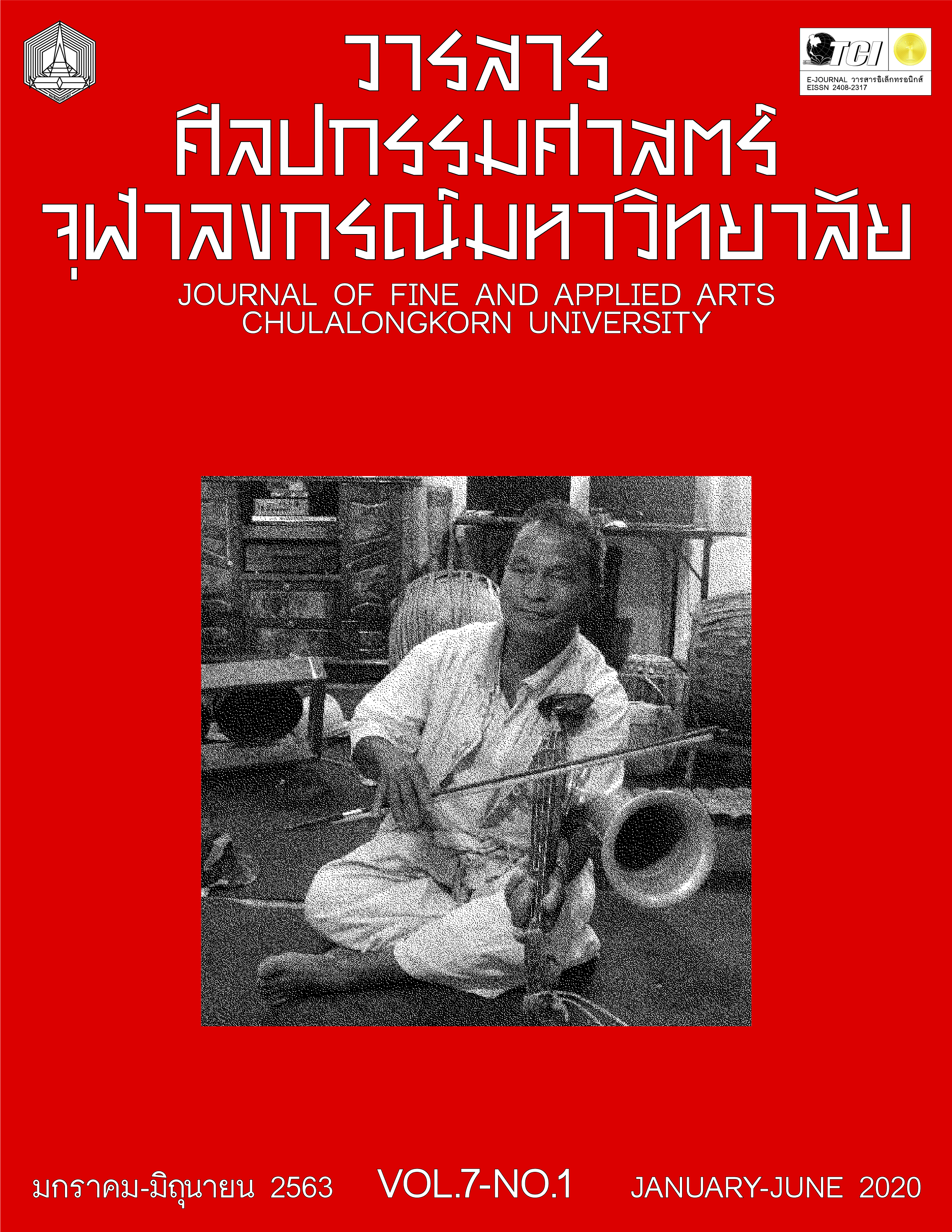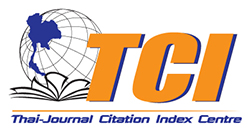ประสิทธิ์ ศิลปบรรเลง: ดุริยกวีผู้บุกเบิกนำทำนองเพลงไทย สู่การบรรเลงด้วยวงดนตรีสากล
คำสำคัญ:
ประสิทธิ์ ศิลปบรรเลง, หลวงประดิษฐไพเราะ, นักแต่งเพลงชาวไทย, Thai Composer, Prasidh Silapabanleng, Thai composerบทคัดย่อ
บทคัดย่อ
นักประพันธ์เพลงร่วมสมัยชาวไทยในปัจจุบันนี้ มีจำนวนเพิ่มมากขึ้นเรื่อยๆ ซึ่งเมื่อกล่าวถึงนักประพันธ์เพลงชาวไทยที่ได้รับอิทธิพลจากดนตรีไทยรุ่นบุกเบิกแล้ว บุคคลสำคัญอีกท่านหนึ่งที่ยังไม่เป็นที่ถูกกล่าวถึงมากนัก คือ อาจารย์ประสิทธิ์ ศิลปบรรเลง ศิลปินแห่งชาติ ประจำปีพ.ศ. 2541 สาขาศิลปะการแสดง (นักแต่งเพลง) ซึ่งเป็นผู้ที่ได้รับอิทธิพลด้านดนตรีไทยจากบิดา คือ หลวงประดิษฐไพเราะ (ศร ศิลปบรรเลง) บรมครูดนตรีไทยในสมัยรัชกาลที่ 5 ถึงรัชกาลที่ 9 อีกทั้งยังได้มีโอกาสไปเรียนวิชาการประพันธ์เพลงที่ประเทศญี่ปุ่นกับ เคลาส์ พริงส์ไฮม์ ศิษย์เอกของ กุสตาฟ มาเลอร์ ทำให้ผลงานการประพันธ์เพลงของอาจารย์ประสิทธิ์มีการผสมผสานดนตรีไทยและดนตรีตะวันตกเข้าด้วยกันอย่างไพเราะ มีคุณค่าทั้งในแง่สุนทรียศาสตร์และวิชาการ สมควรแก่การเผยแพร่ชื่อเสียงให้เป็นที่รู้จัก เพื่อให้นักวิชาการด้านดนตรีรุ่นหลังได้นำผลงานของอาจารย์ประสิทธิ์ไปวิเคราะห์และศึกษาเพื่อเป็นประโยชน์ต่อไป
Abstract
There has been an increasing number of Thai contemporary composers nowadays. When mentioning about Thai composers who have been influenced from Thai traditional music, another notable figure less spoken of is Ajarn Prasidh Silapabanleang, the national artist of the year B.E.2541 in Arts and Performance (composer) who possessed deep music root in Thai traditional music from his father – Luang Pradit Pharoh (Sorn Silapabanleang), the great teacher of Thai traditional music during era of King Rama V until King Rama XI and from his composition practice in Japan with Klaus Pringsheim who is Gustav Mahler’s great disciple. This explains why the composition works of Ajarn Prasidh contain well-harmonized mixture between Thai and Western music with values in both aesthetic and academic aspects that are well-deserved to be made known of to facilitate study and analysis of academic researchers of later generation for further benefits.
ดาวน์โหลด
เผยแพร่แล้ว
ฉบับ
ประเภทบทความ
สัญญาอนุญาต
ลิขสิทธิ์ของบทความเป็นของเจ้าของบทความ บทความที่ได้รับการตีพิมพ์ถือเป็นทัศนะของผู้เขียน
กองบรรณาธิการไม่จำเป็นต้องเห็นด้วยและไม่รับผิดชอบต่อบทความนั้น






